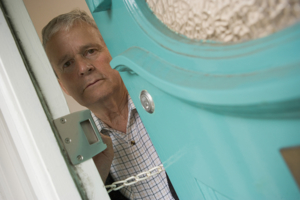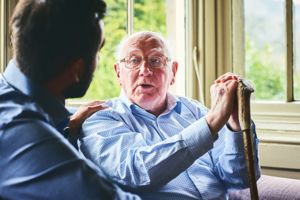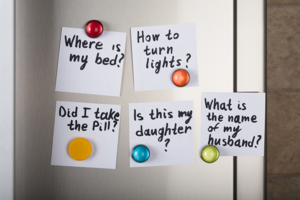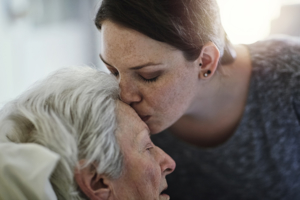Dementia Care Tips: Best Approaches to Avoid Personal Care Resistance

Use these tips to help a senior loved one with dementia manage personal care tasks.
Of all the challenges related to providing care for a senior loved one with dementia, the Alzheimer’s Association indicates that the most prevalent difficulty is with personal hygiene, for a variety of reasons:
- Diminished sense of vision and smell
- Comfort associated with familiarity (i.e., wanting to wear the same clothes again and again)
- The challenges of bathing, compounded by cognitive impairment and confusion
- Anxiety about falling, the sounds and feelings associated with the water, and so much more
Cajoling, quarreling, and reasoning are rarely practical techniques to employ with those impacted by Alzheimer’s or another form of dementia. Alternatively, consider these creative approaches in the event your loved one resists maintaining suitable hygiene:
- Organize the bathroom ahead of time so the room is likely to be comfortable and you won’t need to juggle acquiring supplies together with helping the senior. Warm the room with a space heater, and set soap, shampoo, towels, washcloth, etc. within easy reach, plus eliminate any throw rugs or any other tripping hazards.
- A shower chair and hand-held sprayer frequently make an even more calming bathing experience for anyone with dementia. Position the chair away from the faucet, and use towels to cover up parts of the body before and after they have been cleaned to help keep the senior warm and to prevent feelings of exposure.
- Have the senior help with bathing tasks whenever possible to maintain independence. It could be as basic as providing a washcloth or the shampoo bottle for the senior to hold on to.
- If hair washing is hard for either of you, forego that task during bath time, and schedule regular outings to the salon instead.
- Arrange a special excursion together with the senior, such as a lunch date with a good friend, and center bath time around getting ready for the event.
- Bring in the assistance of a healthcare professional, who can advise the senior regarding the increased chance of infection or skin issues without proper hygiene. Often hearing from a dependable third party holds more weight than hearing the same information from family members.
- Engage the services of a caregiver, providing your loved one the dignity of having personal care needs tended to by a professional, rather than a relative.
At Responsive Home Care, the leaders in home health services in Pembroke Pines, FL, each of our caregivers is experienced in safe hygiene procedures for older adults, with specific training to help those with Alzheimer’s disease to feel comfortable with personal hygiene tasks, including creative approaches to safe bathing, skin, hair, and oral care, restroom assistance, and much more. Give us a call at 954-486-6440 or contact us online to discover practical solutions to the worries you and your loved one are facing!








